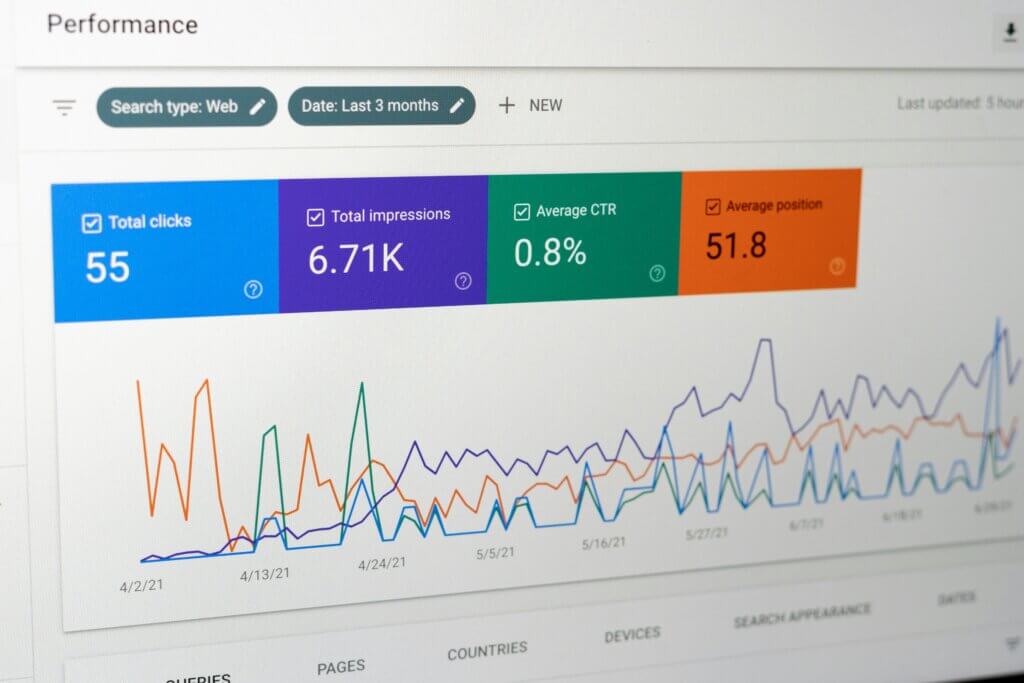Subscribe to receive featured episodes and staff favorites once a month.
Newsletter Signup
Many lawyers today are not adequately prepared to tackle the challenges they face when it comes to law firm optimization, especially with the limited focus that law schools place on the business of law. In fact, research indicates that about 80% of attorneys base critical business decisions on intuition rather than data.
While intuition and experience are valuable, relying solely on them can lead to missed opportunities and poor financial outcomes. As Marketer Conrad Saam says on Lunch Hour Legal Marketing, “If you apply a guess of how humans actually behave, it’ll never be accurate!”
So, what’s the key to optimizing your law firm? Data-driven strategies. To thrive in today’s highly competitive legal environment, legal professionals must grasp data-driven strategies and know how to apply them in their practice to get ahead.
Leveraging data is crucial for developing effective law firm marketing strategies. A data-driven approach to your marketing and operations will not only improve client services, but this data can also optimize marketing efforts and enhance law firm efficiencies amid industry changes.
When law firms can harness the power of legal data analytics, these firms can gain a better understanding of their operations, which, in turn, can help them identify trends and discover opportunities they may have not considered in the past.

For Joyce Brafford, a legal tech wizard, strategically analyzing data is important for law firm owners because it can help them answer the following questions:
Below, we will explore some specific ways data analysis can revolutionize a law firm’s operations.
Law firms that analyze data from their billing software or case management system may be able to discover significant insight into their financial records, such as:
Ed Walters, the Chief Strategy Officer of vLex, talks about this in detail on the Modern Law Library podcast. He encourages listeners to picture this scenario:
Imagine an individual seeking legal guidance sits down with your law firm and asks: “What have you done like this?” “How much does it cost?” “What’s our likely outcome here?” “What are the costs likely to be?”
The team at Law Firm 1 says, “Trust us. It’ll cost whatever our rate is times the number of hours it takes us. We’re great at this and we’re efficient.”
Law Firm 2 says, “We’ve done 22 other cases like this. The least expensive was $104,000. The most expensive was $310,000. The mean is $265, the median is $240. Based on what you’ve shared with us, we think yours is going to come in slightly lower than that. We can roughly estimate it’ll cost around $220,000.”
Do you think the firm that begs for trust or the firm that transparently shows the distribution is going to win the business?
Obviously, Law Firm 2 looks more appealing because they’ve approached the conversation with data.
Law firms can enhance their internal operations using business intelligence. For example, by monitoring billable hours and utilization rates for each legal professional, this data can offer valuable insights into how work and resources should be distributed within the firm. It can also provide guidance on identifying training opportunities and maximizing productivity.

There are various analytics tools that can provide law firms with the insights necessary to make data-driven decisions. However, some of the more common tools that firms use include the following:
Social media platforms, such as LinkedIn and X, offer built-in analytics that can give users detailed information about their post performance, engagement metrics, and audience demographics. When utilized effectively, law firms can use this data to improve their social media strategy.
Interestingly enough, social media can also be used for research and development in trial preparation. The team of lawyers at Simon Law Firm shared some of the most groundbreaking evidence they’ve found on social media and how they’ve used it to win cases on Heels in the Courtroom.
Google Analytics offers valuable insights into user behavior, website traffic, and conversion metrics. Law firms can use this analytics tool to monitor their website’s performance and gain a better understanding of their audience’s demographics and preferences.
Bo Royal, a digital marketing agency owner who learned the ins and outs of advertising and attribution at eBay, recommends using UTM parameters, short text codes at the end of your URLs, so you can properly track a lead all the way from initial contact to sign up to settlement.

Email marketing platforms like Constant Contact and Mailchimp offer analytical features for users who want to monitor email open rates, subscriber engagement, and click-through rates. Law firms can use this data to adjust their email campaigns to send more strategic, engaging messages, which will help the firm’s reputation.
One of the most common email marketing fails occurs when firms fail to properly segment their subscribers. As Email Marketer Tanya Brody puts it, “Lawyers think absolutely everybody under the sun is their audience, which is not true.” She elaborates saying, “If you’re a personal injury lawyer, the people who are getting divorced are not your core audience. The person who’s walking down the street and is fine is not your audience. The person who slipped and fell on that crack? That’s your audience.”
Data-driven strategies have the power to completely transform your legal practice. By thoroughly analyzing and utilizing data, law firms can make informed decisions, optimize their legal marketing efforts, and develop operational efficiencies. For further insights on optimizing your law firm with data-driven strategies, browse Legal Talk Network’s library of podcasts.
Legal Talk Network is a podcast network for legal professionals with hosts from well-known organizations and brands in legal. Over 20 active podcasts cover important legal news and developments, including access to justice, law school, industry events, legal technology, and the future of law.